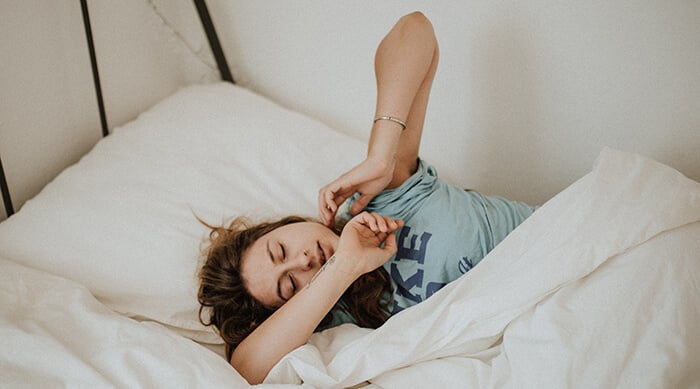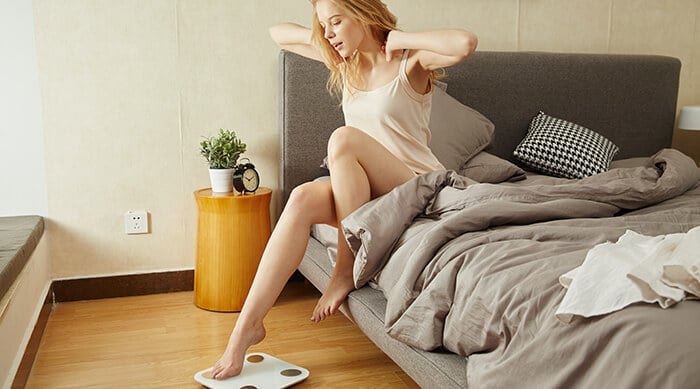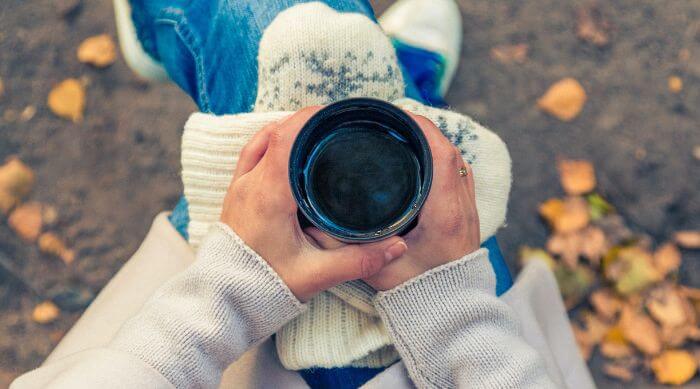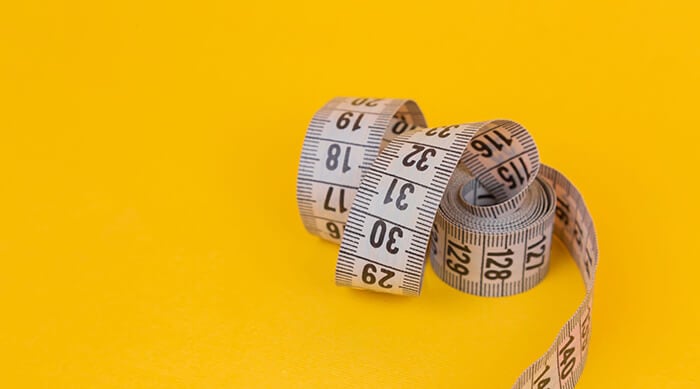Those relaxed, drowsy feelings you feel after having a cocktail or two may make you think a good night’s rest is in your near future. The reality is — alcohol and sleep don’t mix.
The more alcohol you drink, the worse your sleep, setting you up for brain fog and drowsiness the following day, thanks to disruptions to your nightly sleep patterns.
Table of Contents
How does drinking alcohol affect sleep patterns?
How does drinking alcohol affect sleep patterns?
There’s a reason why about a third of our lives are spent asleep. High-quality sleep allows your body to recharge, promotes overall health, and keeps the mind sharp and focused.
When your sleep is disrupted, it can affect your mood, brain function, and even how you interact with others.
If you’ve ever woken up cranky due to a lack of sleep, you know all about this. Long-term sleep disruption can lead to serious health effects, such as high blood pressure, type 2 diabetes, and a higher risk of cancer.
How does alcohol affect sleep? Alcohol affects sleep by helping you fall asleep faster, but it also reduces the amount of rapid eye movement (REM) sleep that night. Over time, this sleep disruption can create health problems.
4 Stages Of Sleep
There are 2 types of sleep, non-REM (NREM) sleep and REM sleep. Sleep falls into 4 stages that help you get from one type to the next.
- Stage 1: This is your body’s transition from wakefulness to the onset of sleep. This light sleep is where you’re most likely to feel your body twitch as your breathing and heart rate slow down.
- Stage 2: During this stage, you’re entering a deeper sleep. A good nap usually gets you to this stage, and your brain waves begin to slow down in slow-wave sleep.
- Stage 3: Brain waves slow down further as you enter a deeper sleep stage. Stage 3 is vital to overall sleep quality, as it’s the deepest stage of sleep that gives you that refreshed feeling.
- Stage 4: After roughly 90 minutes, your body has usually cycled through the first 3 stages and enters REM sleep. Your eyelids may start to flutter, and your breathing increases. Dreaming also happens during this stage.
Most people cycle through the 4 stages of sleep several times throughout the night.
Alcohol causes disturbance in this cycle. The more alcohol consumed, the more sleep disruptions happen throughout the night.
Does alcohol affect my REM sleep? Alcohol does affect your REM sleep. Heavy drinking can delay REM sleep or even prevent you from reaching that last stage.
REM sleep is critical to retaining memories and learning. The rapid brain activity during this sleep stage stimulates overall cognition, keeping your brain sharp and active.
Missing out on REM sleep disturbs your body’s circadian rhythms, increases daytime sleepiness, and makes it difficult to snap out of brain fog in the morning.
The Science Behind Alcohol And Sleep
Alcohol directly affects your sleep, no matter how much alcohol you’re consuming. Too much alcohol (particularly hard liquor) decreases sleep duration and increases poor sleep quality.
One study found that restorative sleep decreases after alcohol consumption, regardless of the amount. The effects they discovered include:
- A low amount of alcohol decreased restorative sleep by 9.3%.
- Moderate drinking decreased restorative sleep by 24%.
- High levels of drinking decreased restorative sleep by 39.2%.
The initial effects of alcohol may make it seem like that nightcap was a good idea. Alcohol increases the amount of adenosine, a brain chemical responsible for drowsiness, in your brain, allowing you to fall asleep faster. But remember, that effect is temporary.
Why can't I sleep when I drink alcohol? You can’t sleep for long when you drink alcohol because alcohol’s initial effects wear off by the middle of the night, disrupting all 4 sleep stages.
How long does alcohol affect sleep? The effects of alcohol wear off after about 4 hours.
You already know alcohol’s effects on REM sleep, too. Even moderate drinking — that’s 2 drinks per day for men and one drink per day for women — has the potential to delay, even inhibit, REM.
Over time, alcohol can increase the chances of developing a sleep disorder like sleep apnea and affect your cognition and concentration. You’ll also notice increased tolerance to alcohol, meaning you’ll need more to feel the same effects.
What is a safe amount of alcohol to drink before bed? There is no safe amount of alcohol before bed, as any amount will disrupt your sleep.
The negative effects of chronic alcohol consumption can impact your sleep homeostasis — the system that regulates your sleeping brain activity and body temperature. If you’ve been using a nightcap as a sleep aid, it may be time to talk to a healthcare provider about healthier options.
How To Improve Sleep
If you’re going to drink, there are ways to improve your sleep habits and prevent sleep disturbances throughout the night.
How do I stop alcohol from ruining my sleep? You can stop alcohol from ruining your sleep by choosing to:
- Time your alcohol intake
- Hydrate
- Avoid daily drinking
- Limit alcohol intake
- Avoid combining alcohol with medications
- Switch to non-alcoholic options
Time Your Alcohol Intake Right
Try to stop drinking well before it’s time to go to bed. Cutting off drinking at least three hours before bed may allow you to preserve more of that sacred REM sleep.
Hydrate
Drink plenty of water before drinking alcohol, while you’re drinking, and after you’re done. This can lessen the amount you drink and prevent the mild dehydrative effects of alcohol consumption. Hydrating is also an effective tactic to avoid a hangover.
Don’t Drink Daily
Drinking every day sets you up for consistent sleep disruption. It can have longer-term effects on your brain cognition and overall well-being, including weight gain that can worsen sleep apnea.
Experts state that skipping a day between sessions can also lessen your chances of alcohol use disorder if you choose to drink.
Limit Alcohol Intake
The more you drink, the worse you sleep. Limit your alcohol to moderate drinking levels or lower to preserve your sleep quality and keep your sleep patterns in check.
Remember, though, that an individual’s tolerance is precisely that: individual. Even one drink could leave you feeling drowsy the next day.
There is no recommended amount of alcohol for pregnant women or breastfeeding mothers — drinking in these life stages can cause serious health complications for the child.
Avoid Combining Alcohol With Medications
Certain medications amplify the effects of alcohol, and sleeping aids should never be used while drinking. Talk to your doctor if you’re worried about interactions between your medications and alcohol.
Switch To Non-Alcoholic Beverages
If you’re looking to limit your drinking or find that you can’t sleep when you drink, try the variety of non-alcoholic spirits, beers, and wine out there as an alternative.
Tasty mocktails are also worth your attention for a flavorful beverage that will keep you feeling rested.
If you don’t want to give up the taste of a nightly glass of wine, you don’t have to. Surely has a non-alcoholic sauvignon blanc that tastes more like the real thing, on top of sparkling non-alcoholic rose for a fun night that doesn’t affect your sleep.
Can drinking help you sleep?
Drinking can help you fall asleep more quickly. It’s a depressant with sedative effects that can also plunge you into a deeper sleep. However, that doesn’t mean your sleep will be high-quality.
Any positive sleep effects you may think you’re getting from that glass of wine before bed are temporary. You’re more likely to wake up in the second half of the night wishing for better sleep.
What are some of the long-term effects of alcohol on sleep? The long-term effects of alcohol on sleep include regular sleep pattern disruptions, cognition, and mental health issues. Heavy drinking can lead to even more severe problems with your overall health.
Alcohol And Sleep Apnea
Alcohol and obstructive sleep apnea are directly related. Studies show that higher levels of alcohol consumption can increase the risk of sleep apnea by 25%.
That doesn’t only mean you’re snoring more aggressively. Sleep apnea affects your airway while you’re sleeping, forcing your body to awake repeatedly throughout the night to breathe.
Consistently getting less than 7 hours of sleep can cause significant stress to your body. Eventually, it’s possible to develop cardiovascular problems, diabetes complications, and high blood pressure.
That snore can also affect your relationship if you sleep with a partner who wants a good night’s sleep.
Alcohol And Insomnia
Some people with insomnia use alcohol to help them fall asleep, leaning on alcohol as they chase a night of normal sleep. Alcohol only exacerbates problems with insomnia, despite the relief you may feel in the short term.
For some people, alcohol does not provide any sedative relief at all. This comes down to neurology — metabolizing alcohol triggers a spike in neurotransmitters like serotonin and dopamine. The balance in neurotransmitters is delicate, and your brain works to compensate for changes. This will look different for everyone.
Regardless of alcohol’s initial impact, it cannot effectively treat sleep deprivation or any sleep issues. Trying to deal with wellness issues through alcohol not only increases the likelihood of developing an alcohol dependency but also negatively affects your overall health.
Missing out on the deep sleep associated with your REM sleep cycle leads to daytime fatigue and worsens any sleep problems or disorders like insomnia.
Dietary aids like melatonin are a safer insomnia strategy, but you should always talk to your doctor before introducing any sleep medicines into your routine.
Sleep better, sip better.
The use of alcohol to help you sleep is never a good idea. Alcohol’s effects on sleep are a good reason not to drink.
That doesn’t mean you don’t have alternatives.
Surely’s non-alcoholic wines are a great way to indulge while still getting a good night’s rest. Finish your day with a crisp white or chilled rosé, or celebrate with a sparkling white if you’re feeling festive.
Sip and sleep better with Surely.
Sources
- Differential effects of non-REM and REM sleep on memory consolidation?
- Short- and long-term health consequences of sleep disruption
- About sleep's role in memory
- Alcohol consumption and sleep quality: a community-based study
- Acute Effect of Alcohol Intake on Cardiovascular Autonomic Regulation During the First Hours of Sleep in a Large Real-World Sample of Finnish Employees: Observational Study
- The adenosine-mediated, neuronal-glial, homeostatic sleep response
- Alcohol and the risk of sleep apnoea: a systematic review and meta-analysis
- The Effects of Alcohol on Quality of Sleep






